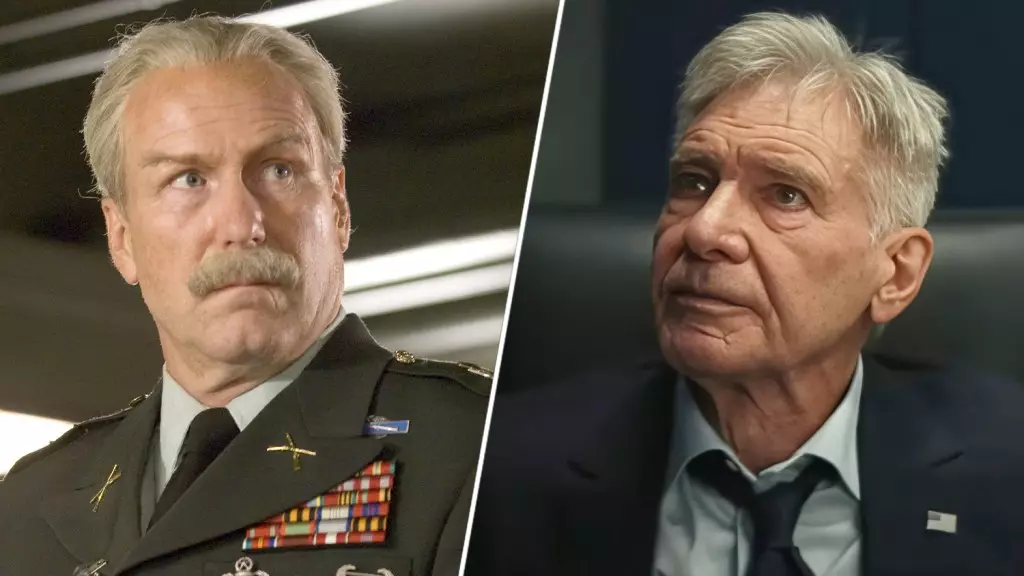Harrison Ford’s foray into the Marvel Cinematic Universe (MCU) with “Captain America: Brave New World” marks a significant transition not just for the veteran actor, but for fans of the franchise as well. Known for iconic roles in films such as “Star Wars” and “Indiana Jones,” Ford now takes on the mantle of Thaddeus Ross, previously brought to life by the late William Hurt. This shift is not merely a casting change; it symbolizes the melding of legacies as Ford grapples with the task of honoring Hurt’s previous portrayal while infusing his own unique interpretation into the character.
During a recent red carpet premiere, Ford expressed his respect for Hurt’s role as Gen. Thunderbolt Ross, stating emphatically that this deep-rooted characterization was one of the main attractions for him in accepting the role. The sentiment reverberates throughout the MCU, where continuity and character development are regarded as paramount. Ford acknowledges this challenge, emphasizing the flexibility within the Marvel Universe’s structure that allows for such transitions without dismissing the significance of the past. This perspective greatly contributes to the richness of narrative that fans expect from the franchise.
Navigating Character Complexity
In “Brave New World,” Ross is not just a governmental figure but a complex character grappling with his duality as he partners with Captain America, portrayed by Anthony Mackie. The film promises not only action and heroism but also an emotional subplot involving Ross’s attempts to reconcile with his daughter, Betty. This familial dynamic introduces additional layers to the character, fostering depth in an environment that could easily lean into generic portrayals.
Furthermore, Ross’s struggle with identity, especially as he conceals a “big, red secret,” juxtaposes the seemingly straightforward world of superhero narratives with deeper human experiences. The film’s premise hints at an exploration of accountability, redemption, and the pursuit of personal evolution—concepts that resonate well beyond its fantastical setting. This thematic richness invites audiences to engage more deeply with the story, recognizing that the stakes extend beyond mere physical confrontations.
A Tribute Amid Transformation
William Hurt’s passing in 2022 left a void in the MCU, and Ford’s entry serves as a poignant reminder of the transitions within cinematic storytelling. Hurt’s portrayal was marked by gravitas and nuance; Ford’s commitment to deliver a performance that honors this legacy showcases a thoughtful approach to character evolution. He approaches the role not just as an actor stepping into shoes left behind, but as a steward of an ongoing story that connects past, present, and future narratives within the MCU.
As “Brave New World” prepares to make its theatrical debut on Valentine’s Day, anticipation builds around how Ford will navigate this role while contributing to the broader universe. As audiences await the film, the underlying question remains: can Ford effectively bridge the gap between honoring Hurt’s legacy and crafting a distinctive narrative for Thaddeus Ross that resonates with current audiences? The answer, eagerly awaited by fans, may very well redefine expectations for character continuity in the ever-expanding Marvel saga.


Leave a Reply